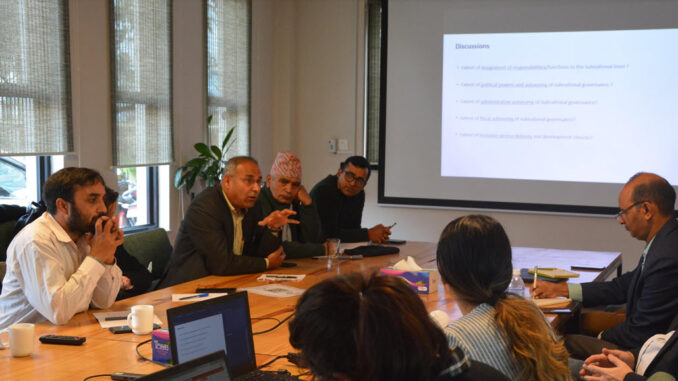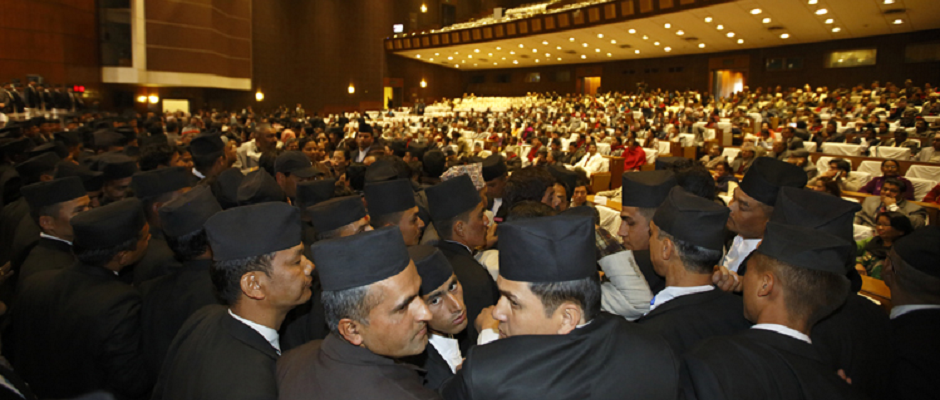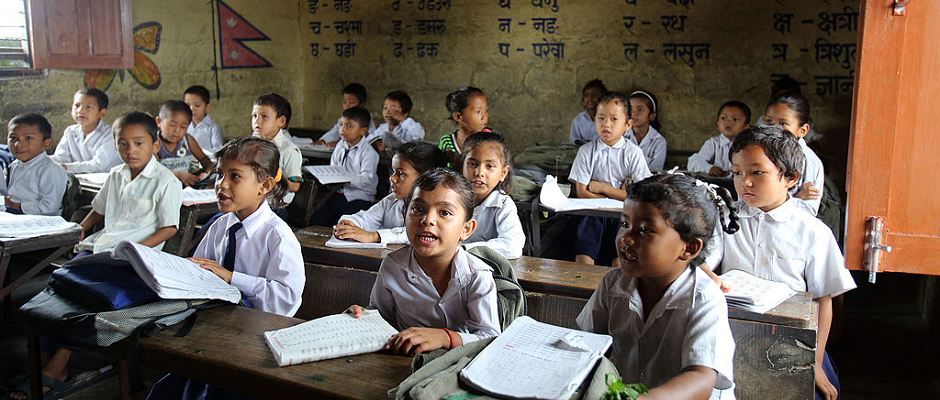
The Asia Foundation Nepal in coordination with the Local Public Sector Alliance (LPSA) convened a consultation program among the country-level stakeholders on November 7, 2022, in Kathmandu, Nepal. The main purpose of the consultation was to validate the preliminary observations from an assessment of the multilevel governance system in Nepal using LPSA’s Local Government Institutions’ Comparative Assessment (LoGICA) framework. The LoGICA assessment for Nepal is being undertaken by The Asia Foundation team as part of a region-wide assessment of the state of local governance institutions in Asia.
It was the first time a consultation meeting on the LoGICA framework was organized with external stakeholders in Nepal. About 35 participants attended the consultation meeting which included representatives from FCDO, USAID, ADB, UNCDF, IDEA International, The Asia Foundation Nepal office, local government experts, and local government associations.
Dr. Jamie Boex, the Executive Director of the Local Public Sector Alliance, opened the meeting by presenting a brief introduction to the LoGICA framework, highlighting its modules and approaches. Next, the Foundation team shared the initial draft of the LoGICA assessment for Nepal along with some of the salient findings from the assessment. The subsequent discussion with stakeholders was primarily focused on the possibilities to collaborate with government counterparts to ensure its ownership, and how the scorecard complements with other similar indices and tools related to federalism implementation and the service delivery that are being practiced in local context.
Preliminary observations from the LoGICA assessment
The Asia Foundation is in the process of finalizing two parts of the LoGICA assessment, notably the LoGICA Intergovernmental Context as well as the LoGICA Score Card. The LoGICA Intergovernmental Context provides an overview of a country’s background, territorial-administrative organization, subnational governance arrangements, and functional assignments. In turn, the LoGICA Score Card provides a comparative assessment of the five main dimensions of a multilevel governance system, including (i) functional responsibilities; (ii) political; (iii) administrative; and (iv) fiscal aspects of subnational governance, as well as (e) inclusive and responsive local service delivery and development. For each of these five institutional dimensions, four questions or score card indicators are included, with each indicator being assigned a score ranging from zero to five points.
The initial draft of the LoGICA assessment suggests that after five years of implementation of federalism, Nepal has progressed in a number of areas, particularly in the assignment of functional responsibilities and political devolution. The draft assessment also suggests that Nepal still requires substantial steps toward achieving the administrative devolution envisioned by the constitution, effective intergovernmental fiscal systems and enhancing effective service delivery requirements. The application of the LoGICA framework suggests that the assessment functions as a useful tool for generating evidence on the status of devolution in the country, and to serves as a mechanism to convene and sensitize the formal and informal institutions working on the local government democratization and federalism implementation in the local context.
The discussion also highlighted that LoGICA could be the framework that would present the macro picture of the country in terms of the adoption of the democratic decentralization system and institutional design based on its core principles.
The final results of the LoGICA Assessment for Nepal are expected to be made available in early 2023.
Policy implications
The Nepal Country preliminary assessment through LoGICA provides a careful assessment, of where Nepal should focus its next level of reform initiatives after it adopted the new Constitution in 2015 embodying the federal design of the state.
The country and stakeholders can benefit by introducing reform initiatives in the specific areas where it lags behind, as unveiled by the assessment. The assessment provides a piece of evidence for the donor agencies, civil society, and local government associations to advocate for policy reform. The participants also emphasized the need to establish coalitions within interest groups of individuals and institutions for wider dissemination in order to support the discourse on democratic reform in local governance.
This blog was prepared by Prakriti Nepal, Parshuram Upadhyay, Srijana Nepal and Amol Aacharya (The Asia Foundation, Nepal team). The team has led he preparation of the LoGICA Assessment for Nepal with support from the Asia Foundation Governance team (Peter Yates and Miranda Lucas).



